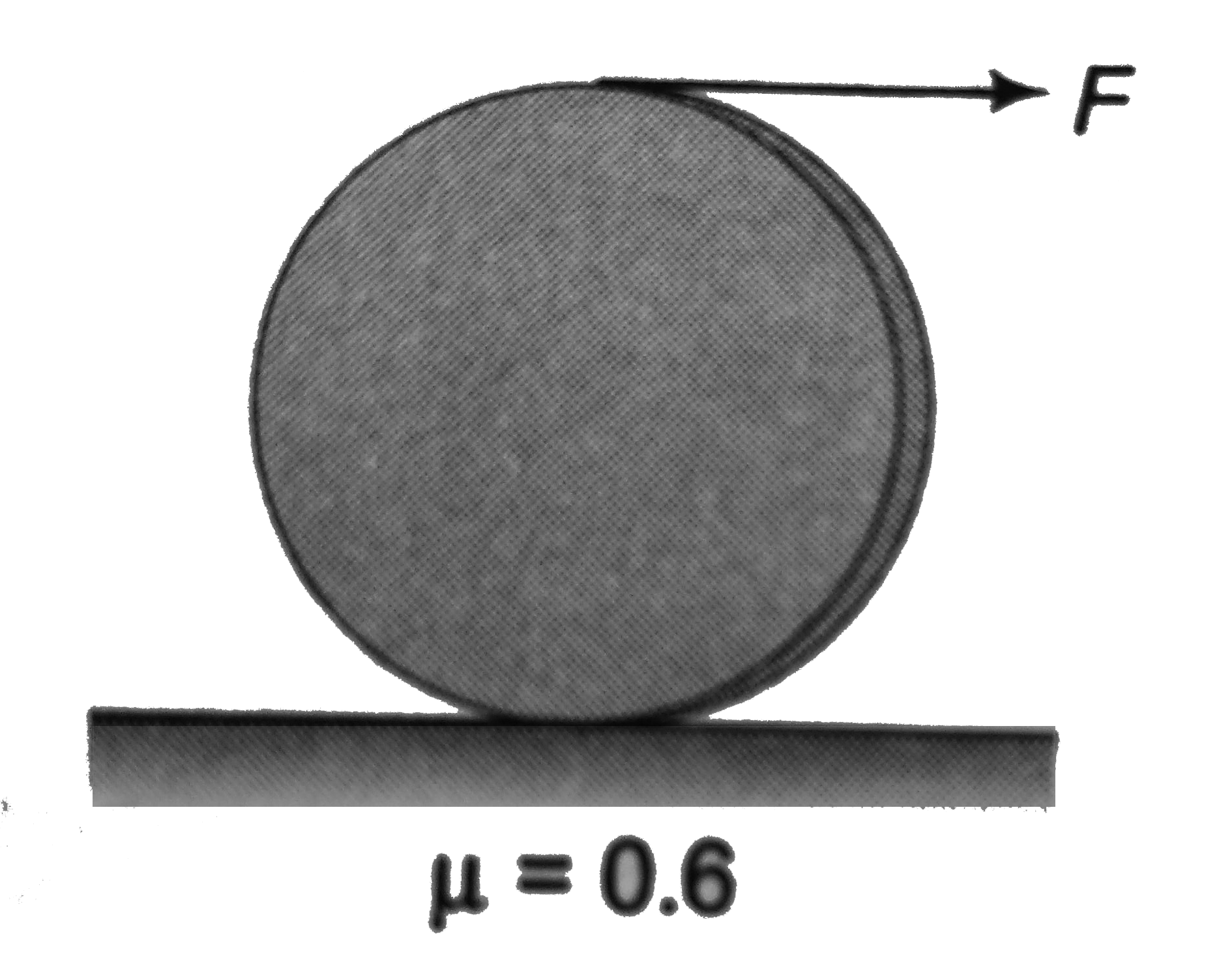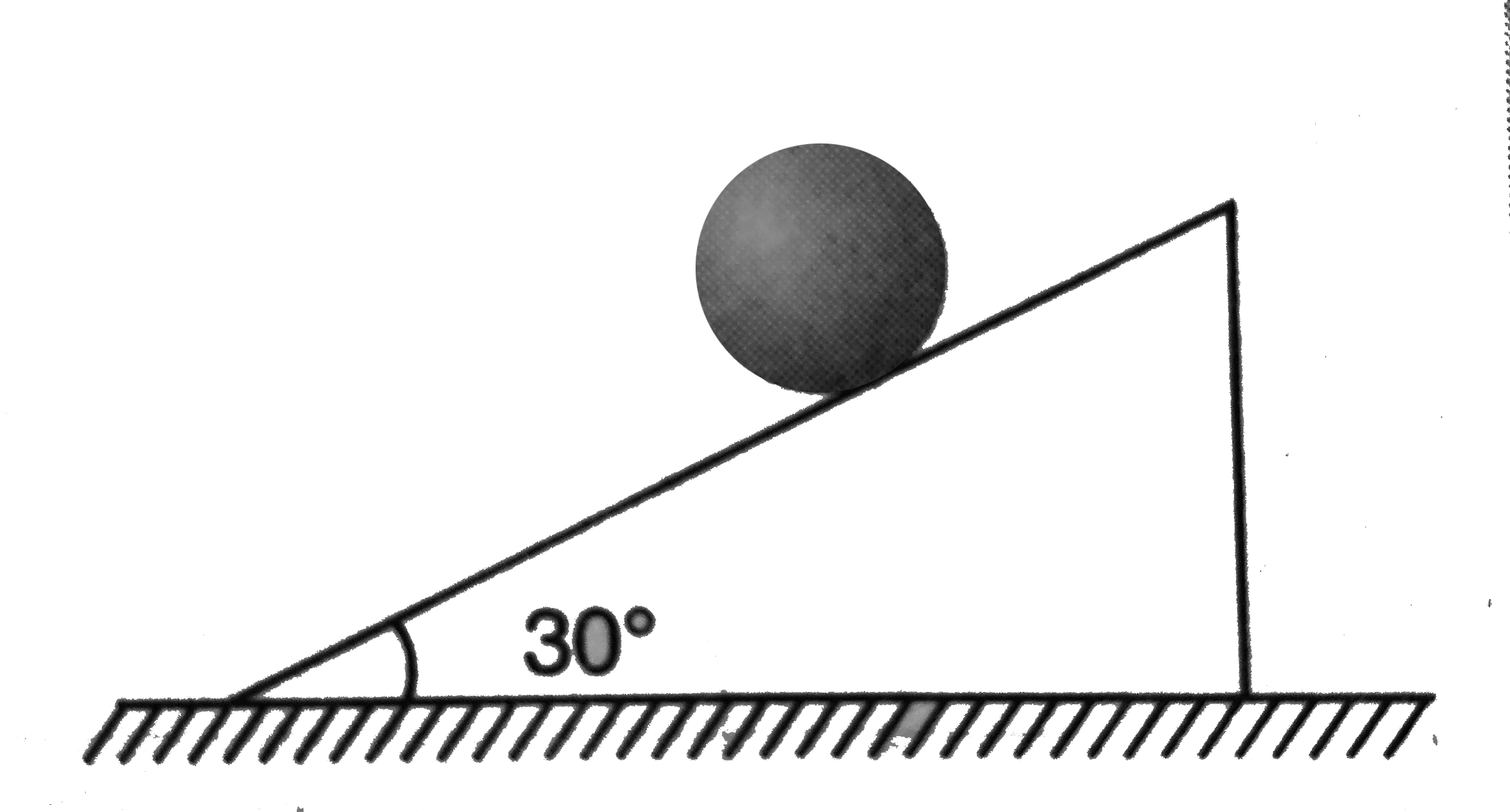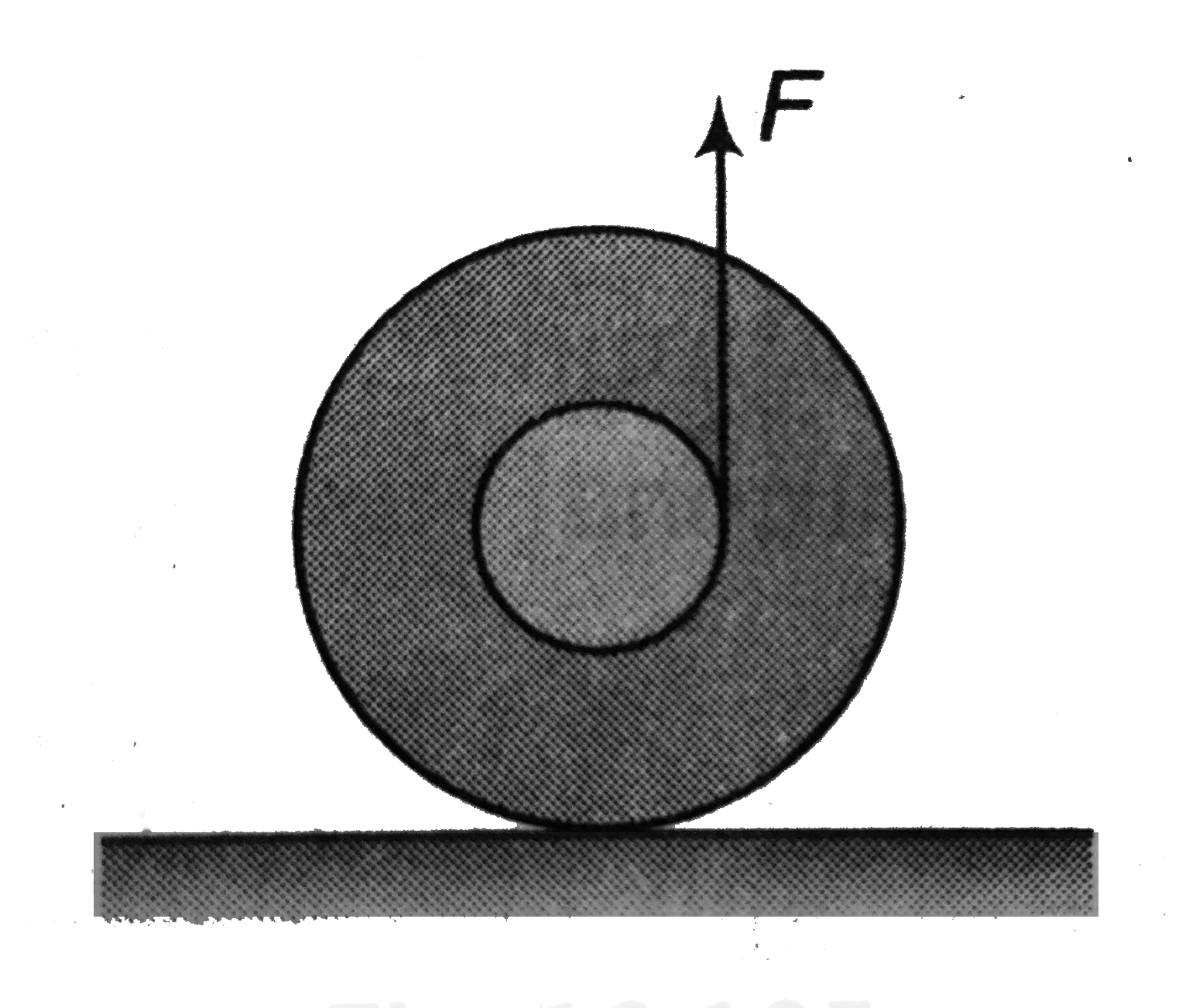Complete Solutions to Exercise 12.10 of chapter ROTATIONAL MECHANICS of Class 11 book with complete answers and questions
| Class 11 | PHYSICS |
| Chapter | ROTATIONAL MECHANICS |
| DC PANDEY | Exercise 12.10 |
| Number Of Questions | 5 |
| Academic Year | 2023-24 |
Work done by friction in pure rolling is always zero. Is this statement true or false?
View Solution
In the figure shown, a force F is applied at the top of a disc of mass 4 kg and radius 0.25 m. find maximum velue of F for no slipping.
View Solution
In the figure shown a solid sphere of mass 4kg and radius 0.25 m is placed on a rough surface. `(g=10ms^(2)`)
(a). Minimum coefficient of friction for pure rolling to take place,
(b). If `mugtmu_(min)` find linear acceleration of sphere.
(c). if `mu=(mu_(min))/(2)`, find the linear acceleration of cylinder.
Here `mu_(min)` is the value obtained part (a).
View SolutionA ball of mass `M` and radius R is released on a rough inclined plane of inclination `theta`. Friction is not sufficient to prevent slipping. The coefficient friction between the ball and the plane is `mu`. Find
(a). The linear acceleration of the ball down the plane.
(b). the angular acceleration of the ball about its centre of mass.
View Solution
A spool is pulled by a force in vertical direction as shown in figure . What is the direction of friction in this case? The spool does not loose contact with the ground.
View Solution
Exercise 12.10 questions and complete solutions for chapter ROTATIONAL MECHANICS of DC PANDEY PHYSICS (HINGLISH) of Class 11
All Exercises from DC PANDEY Class 11 PHYSICS ROTATIONAL MECHANICS
- Assertion And Reason
- Examples
- Exercise 12.1
- Exercise 12.10
- Exercise 12.11
- Exercise 12.2
- Exercise 12.3
- Exercise 12.4
- Exercise 12.5
- Exercise 12.6
- Exercise 12.7
- Exercise 12.8
- Exercise 12.9
- Level 1 Objective
- Level 1 Subjective
- Level 2
- Level 2 Multiple Correct
- Level 2 Single Correct
- Level 2 Subjective
- Miscellaneous Examples
- Solved Example
- Solved Examples
- Subjective Questions